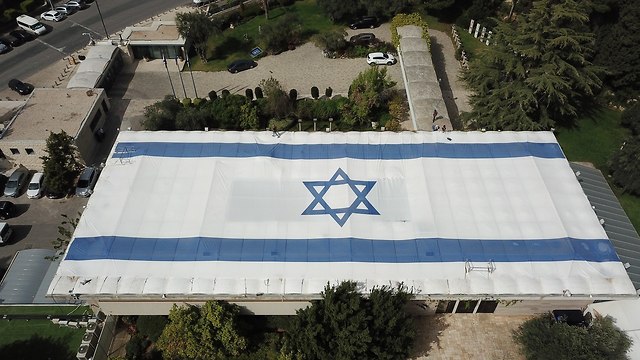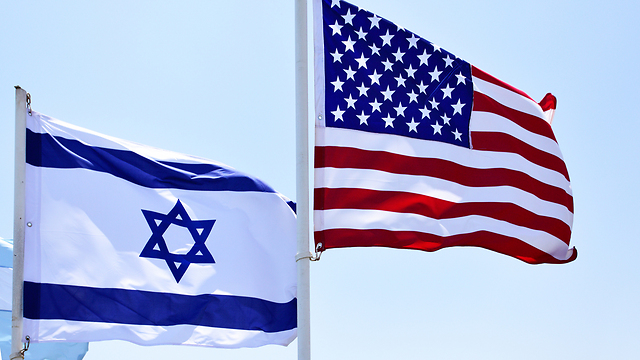
Israel at 70: What next for the nation and its people?
Op-ed: This small country, 58 percent of which is largely barren desert, has despite all odds become a world leader in the fields of energy and technology, a veritable breeding ground for innovative start-ups. Despite being in its infancy as a nation, Israeli innovation has spawned myriad inventions, from the UBS memory stick and essential smart phone technology, to cherry tomatoes and water conservation technology.
This vision predated the establishment of the American Jewish Congress. The American Jewish Congress is this year celebrating its centenary, having been formed in the aftermath of the Balfour Declaration, which paved the way for the creation of the State of Israel.
Israel was founded in 1948 out of the ashes of the Holocaust and its death toll of six million Jews. The American Jewish Congress had been instrumental in coordinating relief efforts for Jewish Holocaust survivors. When the enormity of the Holocaust’s atrocities became public, the American Jewish Congress was proactive in campaigning for the creation of a Jewish state and played an integral role in winning US recognition and support of Israel.

Since then, the United States has gone on to become one of Israel’s most loyal and vocal allies, yet recent data by the Pew Research Center found that just 46 percent of Americans sympathized with Israel over the Palestinians.
The fact that Yom Ha’atzmaut, Israel’s national Independence Day, is celebrated just one week after the country’s official Holocaust commemoration day, Yom Hashoah, is no accident. Yom Hashoah is even more poignant this year, coinciding as it does with the 75th anniversary of the Warsaw Ghetto Uprising, the final act of Jewish resistance in the once vibrant Warsaw Jewish community, which resulted in the deaths of some 13,000 of the ghetto’s residents.
This act of defiant resistance and its tragic consequences resonates with me especially. Both my parents were born in Poland and my grandfather and several uncles were killed during the Holocaust when the Polish family hiding them set their hiding place on fire, burning them alive.
The fact that Israel was founded as the Jewish state to provide a home for a Jewish demographic, an estimated 80 percent of which was wiped out in the Holocaust, left an indelible mark on the nation’s identity. As Chaim Weizmann wrote to David Ben-Gurion during World War II, “Heretofore we were a people in search of a nation: When this is over, we will be a nation in search of a people.” The fact that official data from Israel’s Central Bureau of Statistics show that world Jewry still hasn’t reached its pre-WWII levels only reinforces this idea.
More than any other nation, Israel continues to divide opinion, among individuals, nations and at international institutions, as it is held to higher standards of statehood than other Western countries, not to mention more unsavory regimes around the world.
The widespread condemnation that greeted the US recognition of Jerusalem as Israel’s capital is a case in point. Yet despite this continued double standards and existential threats to their nation’s existence, the Israeli identity is resilient and robust, and Israelis somehow manage to continue to build their thriving country and economy.
As Israel prepares this year to mark 70 years since its creation, this small country, 58 percent of which is largely barren desert, has despite all odds become a world leader in the fields of energy and technology, a veritable breeding ground for innovative start-ups. Despite being in its infancy as a nation, Israeli innovation has spawned myriad inventions, from the UBS memory stick and essential smart phone technology, to cherry tomatoes and water conservation technology.
Since 1948, the number of Jews in Israel has increased nearly tenfold, even though, during this same period, the number of Diaspora Jews has dropped from 10.8 million to about 8 million in 2016.

The 70th anniversary of Israeli independence is marked as in previous years with the annual torch lighting ceremony, which at its inception featured 12 torches representing the 12 tribes of Israel. In 1979, the ceremony was expanded with the addition of a 13th torch representing peace.
Peace will only be achieved by furthering dialogue and cooperation by those with a common interest in helping to bring both sides to the negotiating table. The US must continue to play a vital role in this process and organizations like ours can use our experience of grass roots activity and high-level diplomacy to help promote the necessary culture of cooperation for US-led efforts to engage both Israel and the Muslim world in constructive dialogue to yield results.
Israel now finds itself with a prime minister, Benjamin Netanyahu, who is evolving his attitude on fostering relations with Gulf States. Netanyahu recognizes that in reaching out around the world beyond Israel’s traditional allies, showing them what Israel has to offer in terms of technology and innovation, not only will it aid its economy and regional development beyond Israel’s borders, but it will help on the path to coordinating an alliance of major powers necessary to bring the region back from the brink of war.
My own experience travelling across the region has shown a clear desire from Gulf leaders to engage with Israel and the Saudi Crown Prince gave the clearest indication of his support for Israeli sovereignty on the road to achieving peace, when he told US media on last month’s visit to Washington: “I believe the Palestinians and the Israelis have the right to have their own land.”
Middle East peace has long been elusive, but I firmly believe when we dare to dream big, we can realize those dreams and begin to make changes that impact the world. As Albert Einstein, co-founder of the American Jewish Congress, once said: “Peace cannot be kept by force, it can only be achieved by understanding.”
As Israel approaches this landmark anniversary, all efforts must go towards maintaining its historic good relations with the Jewish community in the US and around the world over the next 70 years.
Jack Rosen is president of the American Jewish Congress.
The American Jewish Congress is this week launching a grass roots campaign “BDS is antisemitism—United Against BDS” to confront the stereotypes fuelled by the BDS movement in the hopes of countering anti-Semitism on campuses and creating a secure environment for Jewish students.”










